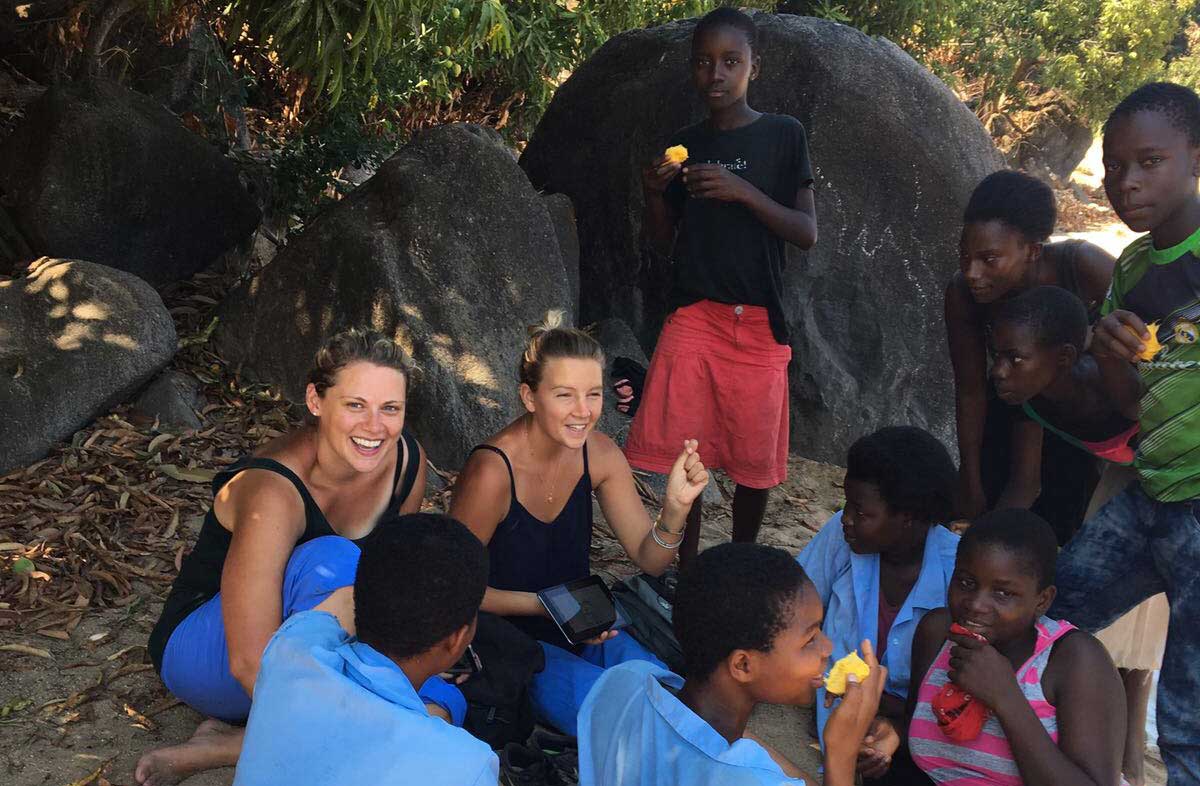“Not that long ago, in a former life, I worked as a Chief Innovation Officer for a publicly listed company where I wa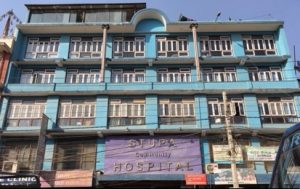 s charged with finding new technologies and business ideas. I travelled the world in business class, stayed at five star hotels and ate at fancy restaurants. I was living the dream, or so I thought. Eighteen months ago I quit to do my own thing(s). One of those things was a ‘start up’, Feedback Nutrition which is a public health enterprise. The idea is to use profits from sales of products in Australia to be used for public health interventions in disadvantaged communities. We have developed and registered a product to be sold in Australia but needed a ‘cause’ to invest our profits in to. In other words we had a great solution looking for a problem.
s charged with finding new technologies and business ideas. I travelled the world in business class, stayed at five star hotels and ate at fancy restaurants. I was living the dream, or so I thought. Eighteen months ago I quit to do my own thing(s). One of those things was a ‘start up’, Feedback Nutrition which is a public health enterprise. The idea is to use profits from sales of products in Australia to be used for public health interventions in disadvantaged communities. We have developed and registered a product to be sold in Australia but needed a ‘cause’ to invest our profits in to. In other words we had a great solution looking for a problem.
It turns out that developing a product is the easy part. Finding a project that would have an impact on disadvantaged communities was extremely difficult. After 2 years of searching without success, I decided I would investigate first hand what problems were facing developing countries and signed up for a medical internship program in Nepal with The Global Nomadic organisation . At very least I could help out – at least that is what I thought.
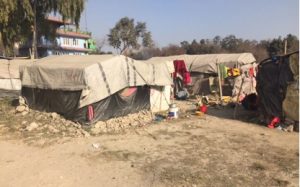
My discovery trip to Nepal could not be further from life in the corporate world I had became accustomed to. Firstly, I had to get used to a long haul in economy. Comfort is all about relativity and I got used to flat beds and 3-course dinners. It was clear those days were over. To add insult to injury I shared a room with 5 other volunteers and I was on the top of a bunk bed (I had lost the skill of getting up and down after 40 years). Each day I took a public bus to and from the hospital. In Nepal there is always room for one more person in the bus!
OK enough of the whinging! What emerged over the next month was nothing short of magical. Day two at the Stupa Community Hospital I met a very humble pathologist named Dr Ramesh. He was open, enthusiastic and friendly. Each day I would rock up early in the morning to the pathology department to get another lesson on Nepal’s health issues, disaster relief, the public health system and many diseases viewed through a microscope. I learned about Tuberculosis and Leprosy, both of which are very common in Nepal due to the poor housing and sanitation conditions. I felt like a student again.
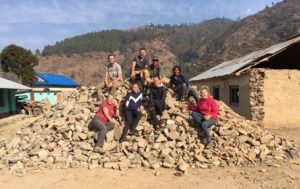 After a week of very insightful and interesting ‘lessons’ I was invited for lunch with Dr Ramesh and Dr Archana (Dr Ramesh’s wife who is a Obstetrician & Gynaecologist). Over lunch they disclosed to me work they had done with disaster relief after the 2015 earthquake. They had learned many things about remote health care and believed they had another exciting idea that would have a major public health impact on Nepal’s disadvantages women.
After a week of very insightful and interesting ‘lessons’ I was invited for lunch with Dr Ramesh and Dr Archana (Dr Ramesh’s wife who is a Obstetrician & Gynaecologist). Over lunch they disclosed to me work they had done with disaster relief after the 2015 earthquake. They had learned many things about remote health care and believed they had another exciting idea that would have a major public health impact on Nepal’s disadvantages women.
WOW! Where did this come from I thought? Although I was learning a lot from my volunteering, I didn’t feel like I was making any real impact. However, Dr Ramesh and Dr Archana had a real problem that they wanted to address and I had an idea on how I could help. More to come on this in the future I am finalising an indiegogo campaign to raise the necessary funds to kick off this cervical cancer screening program in Nepal.
For my last week of volunteering I decided to head out to Mate village, which is located in 5 hours truck ride outside of Kathmandu. Eight Volunteers, 9 locals and four goats (yes you read correctly and you can see them in the picture below) piled in the back of a Mahindra truck at travelled for 5 hours to Mate. We spent the week with a lovely local family, ate delicious local cuisine and worked on a school building project. The school was damaged in the earthquake. Using very primitive tools, a stream of volunteers will work over 2 years to take down the old buildings and build new ones. Our crew dug for a week.
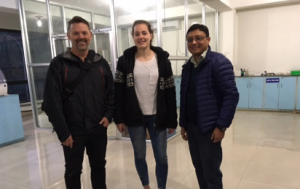 When I travelled the world working in a corporate environment I met some amazing people and listened to some fascinating ideas. However, I also met some sharks, obstructers and myopic executives that diluted the chance of any real progress or innovation. My volunteer experience has revealed to me that when we take away all the BS and politics we get to the heart of innovation – a big problem, limited resources, creative ideas and passionate people. My volunteer experience gave to more than I feel I gave to it. Through my #HelpYourselfHelpOthers campaign I hope to turn that around so that I am giving more back than taking away. Thanks to Global Nomadic, The Green Lion, Feedback Nutrition, all the seriously cool volunteers, Stupa community hospital, residents of Mate and finally Dr Ramesh and Dr Archana.”
When I travelled the world working in a corporate environment I met some amazing people and listened to some fascinating ideas. However, I also met some sharks, obstructers and myopic executives that diluted the chance of any real progress or innovation. My volunteer experience has revealed to me that when we take away all the BS and politics we get to the heart of innovation – a big problem, limited resources, creative ideas and passionate people. My volunteer experience gave to more than I feel I gave to it. Through my #HelpYourselfHelpOthers campaign I hope to turn that around so that I am giving more back than taking away. Thanks to Global Nomadic, The Green Lion, Feedback Nutrition, all the seriously cool volunteers, Stupa community hospital, residents of Mate and finally Dr Ramesh and Dr Archana.”
Medical Internship in Nepal
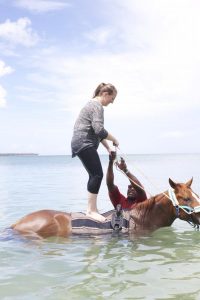 and adults with varying disabilities to use the facilities at Healing With Horses. These are free sessions and rely heavily upon volunteers to provide a safe environment for the people who use them. I got to work with young adults who had mild to severe learning difficulties, we groomed the horses, mucked out, watered them and then they had the chance to sit on and ride one of the horses in turns. I also had the opportunity to work with the children from the Tobago School for the Deaf, the children were more loving and compassionate than you could imagine and were desperate to show you how they could bounce on the trampolines, dig in the gardens, plait the ponies and how fast they could run round the obstacle course. It was so lovely to see them enjoying themselves and really working together to help each other around, particularly with children who also had physical disabilities.
and adults with varying disabilities to use the facilities at Healing With Horses. These are free sessions and rely heavily upon volunteers to provide a safe environment for the people who use them. I got to work with young adults who had mild to severe learning difficulties, we groomed the horses, mucked out, watered them and then they had the chance to sit on and ride one of the horses in turns. I also had the opportunity to work with the children from the Tobago School for the Deaf, the children were more loving and compassionate than you could imagine and were desperate to show you how they could bounce on the trampolines, dig in the gardens, plait the ponies and how fast they could run round the obstacle course. It was so lovely to see them enjoying themselves and really working together to help each other around, particularly with children who also had physical disabilities.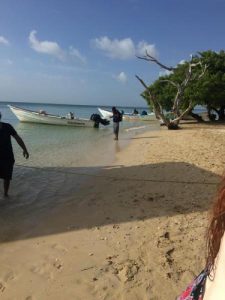 Veronika and Lennon, the founders, are the most inspiring people, I learnt so much about their practises with the horses, how they go out most days and rake grass from the golf course to provide the hay, the amount of care and attention they provide for all the children. At the end of my placement, I was invited on a trek along the beach, bareback riding with just a head collar, followed by a photographer and swimming with the horses, walking through the mangroves and just generally enjoying going out with the whole herd.
Veronika and Lennon, the founders, are the most inspiring people, I learnt so much about their practises with the horses, how they go out most days and rake grass from the golf course to provide the hay, the amount of care and attention they provide for all the children. At the end of my placement, I was invited on a trek along the beach, bareback riding with just a head collar, followed by a photographer and swimming with the horses, walking through the mangroves and just generally enjoying going out with the whole herd.
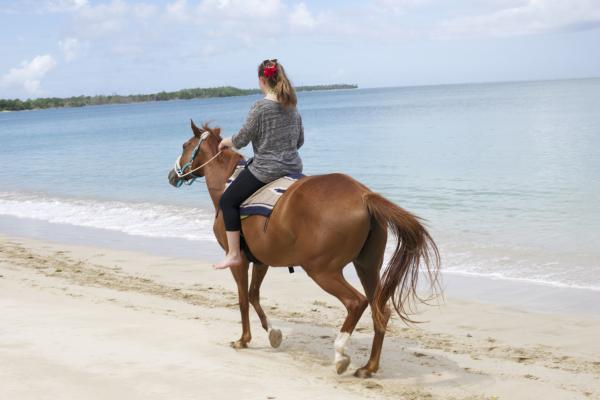

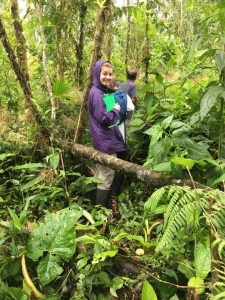 I was greeted by Andy, the Amazon Learning coordinator on my first day and taken to Casa Runa. I was thoroughly impressed by how spacious and clean it was, and the location was simply beautiful with a stream close by and views of the local Chimborazo volcano. Hummingbirds and fireflies were always a delight to see around the jungle garden. The week of orientation was a great chance to meet the other awesome interns and get to know the local towns of Tena and Archidona which were easily accessible by bus. We were introduced to Ecuadorian history, environment, how to deal with culture shock and how to reflect on our time there. The support network was incredibly strong from the outset and all the interns within Casa Runa and those at homestays were very close throughout the duration of our stays, which I found very valuable. The locals were also incredibly friendly and willing to share their culture with us which made the experience all the more enjoyable. Even with my limited Spanish they were very helpful and encouraging!
I was greeted by Andy, the Amazon Learning coordinator on my first day and taken to Casa Runa. I was thoroughly impressed by how spacious and clean it was, and the location was simply beautiful with a stream close by and views of the local Chimborazo volcano. Hummingbirds and fireflies were always a delight to see around the jungle garden. The week of orientation was a great chance to meet the other awesome interns and get to know the local towns of Tena and Archidona which were easily accessible by bus. We were introduced to Ecuadorian history, environment, how to deal with culture shock and how to reflect on our time there. The support network was incredibly strong from the outset and all the interns within Casa Runa and those at homestays were very close throughout the duration of our stays, which I found very valuable. The locals were also incredibly friendly and willing to share their culture with us which made the experience all the more enjoyable. Even with my limited Spanish they were very helpful and encouraging!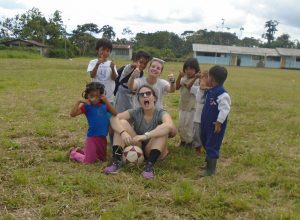 At weekends we also made the most of exploring the stunning local scenery, either going swimming in local rivers and pools, taking bus trips to the local backpacker town of Baños to go canyoning and hiking, going white water rafting with a local instructor or going salsa dancing in the vibrant bars in Tena. We were also there at the time of the Napo festival which was amazing to witness!
At weekends we also made the most of exploring the stunning local scenery, either going swimming in local rivers and pools, taking bus trips to the local backpacker town of Baños to go canyoning and hiking, going white water rafting with a local instructor or going salsa dancing in the vibrant bars in Tena. We were also there at the time of the Napo festival which was amazing to witness!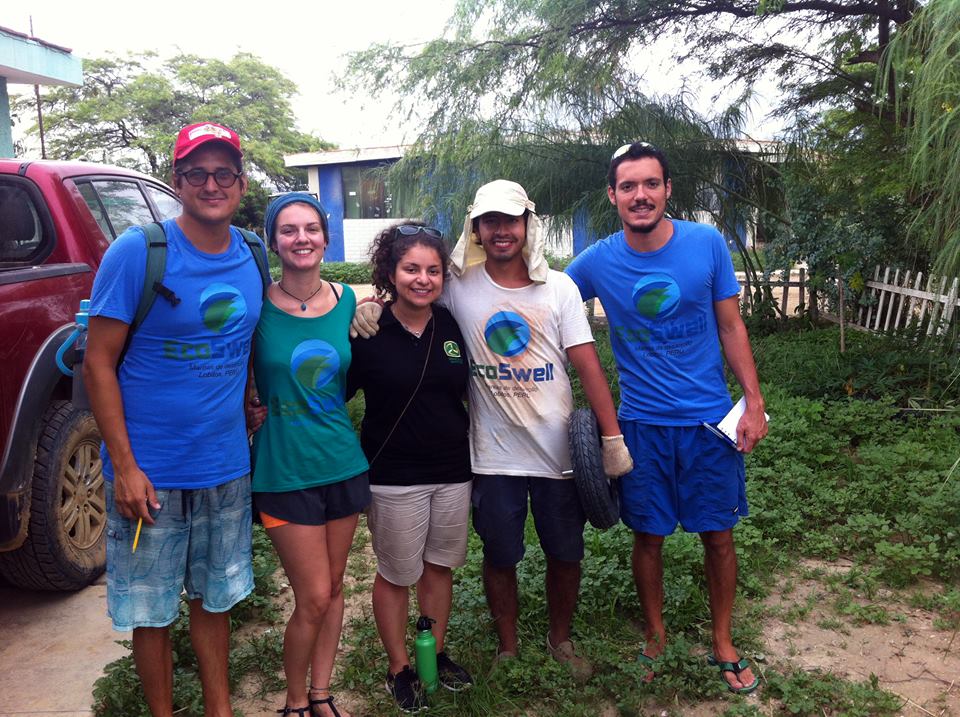
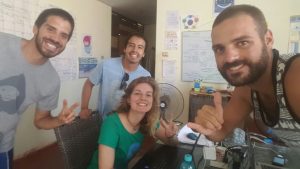 On arrival, I instantly felt at home although I was the only girl! The guys made me feel incredible looked after and welcome and involved in all the projects they had to offer. The intern house was spacious and comfortable and only a one minute walk from the beautiful beach – it was
On arrival, I instantly felt at home although I was the only girl! The guys made me feel incredible looked after and welcome and involved in all the projects they had to offer. The intern house was spacious and comfortable and only a one minute walk from the beautiful beach – it was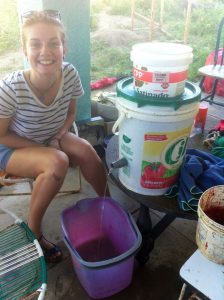 a perfect location, and exotic birds and butterflies were always close by. Making food and sharing cuisine was a big focus part of our working days, I was thoroughly impressed by the colourful dishes we created! In my short time I was involved in a number of exciting projects, from piloting algae farming projects to making sand filters to purify water. I really appreciated every day being different and exciting, it was a true insight into the working lives of the EcoSwell team. I was challenged by the language barrier as I knew minimal Spanish, however with help from the other interns I managed to improve quite considerably by the end of my stay. I was proud of challenging myself to learn something I had never considered learning before.
a perfect location, and exotic birds and butterflies were always close by. Making food and sharing cuisine was a big focus part of our working days, I was thoroughly impressed by the colourful dishes we created! In my short time I was involved in a number of exciting projects, from piloting algae farming projects to making sand filters to purify water. I really appreciated every day being different and exciting, it was a true insight into the working lives of the EcoSwell team. I was challenged by the language barrier as I knew minimal Spanish, however with help from the other interns I managed to improve quite considerably by the end of my stay. I was proud of challenging myself to learn something I had never considered learning before.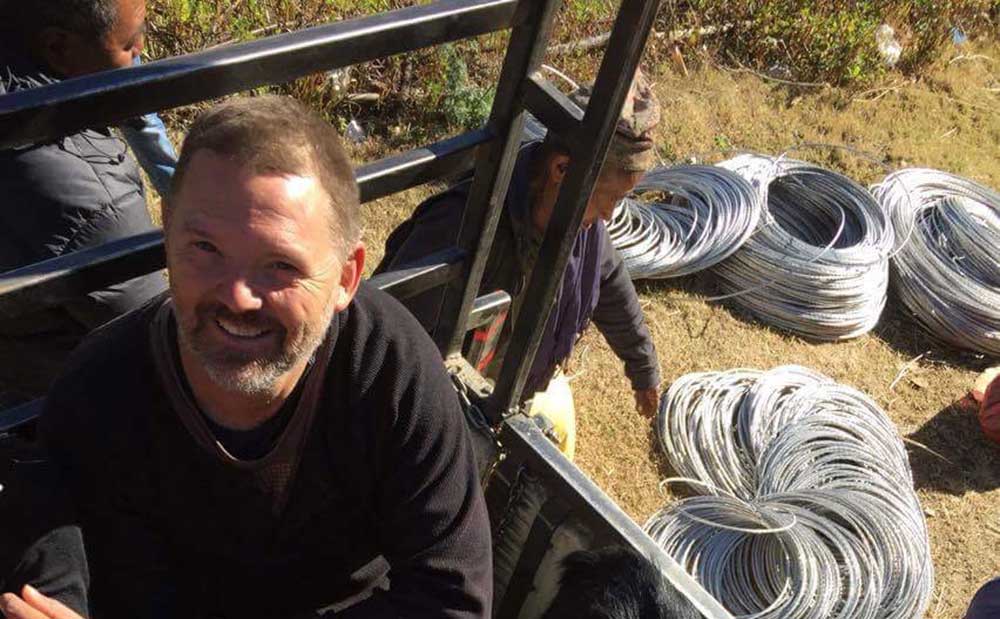
 s charged with finding new technologies and business ideas. I travelled the world in business class, stayed at five star hotels and ate at fancy restaurants. I was living the dream, or so I thought. Eighteen months ago I quit to do my own thing(s). One of those things was a ‘start up’, Feedback Nutrition which is a public health enterprise. The idea is to use profits from sales of products in Australia to be used for public health interventions in disadvantaged communities. We have developed and registered a product to be sold in Australia but needed a ‘cause’ to invest our profits in to. In other words we had a great solution looking for a problem.
s charged with finding new technologies and business ideas. I travelled the world in business class, stayed at five star hotels and ate at fancy restaurants. I was living the dream, or so I thought. Eighteen months ago I quit to do my own thing(s). One of those things was a ‘start up’, Feedback Nutrition which is a public health enterprise. The idea is to use profits from sales of products in Australia to be used for public health interventions in disadvantaged communities. We have developed and registered a product to be sold in Australia but needed a ‘cause’ to invest our profits in to. In other words we had a great solution looking for a problem.
 After a week of very insightful and interesting ‘lessons’ I was invited for lunch with Dr Ramesh and Dr Archana (Dr Ramesh’s wife who is a Obstetrician & Gynaecologist). Over lunch they disclosed to me work they had done with disaster relief after the 2015 earthquake. They had learned many things about remote health care and believed they had another exciting idea that would have a major public health impact on Nepal’s disadvantages women.
After a week of very insightful and interesting ‘lessons’ I was invited for lunch with Dr Ramesh and Dr Archana (Dr Ramesh’s wife who is a Obstetrician & Gynaecologist). Over lunch they disclosed to me work they had done with disaster relief after the 2015 earthquake. They had learned many things about remote health care and believed they had another exciting idea that would have a major public health impact on Nepal’s disadvantages women. When I travelled the world working in a corporate environment I met some amazing people and listened to some fascinating ideas. However, I also met some sharks, obstructers and myopic executives that diluted the chance of any real progress or innovation. My volunteer experience has revealed to me that when we take away all the BS and politics we get to the heart of innovation – a big problem, limited resources, creative ideas and passionate people. My volunteer experience gave to more than I feel I gave to it. Through my #HelpYourselfHelpOthers campaign I hope to turn that around so that I am giving more back than taking away. Thanks to Global Nomadic, The Green Lion, Feedback Nutrition, all the seriously cool volunteers, Stupa community hospital, residents of Mate and finally Dr Ramesh and Dr Archana.”
When I travelled the world working in a corporate environment I met some amazing people and listened to some fascinating ideas. However, I also met some sharks, obstructers and myopic executives that diluted the chance of any real progress or innovation. My volunteer experience has revealed to me that when we take away all the BS and politics we get to the heart of innovation – a big problem, limited resources, creative ideas and passionate people. My volunteer experience gave to more than I feel I gave to it. Through my #HelpYourselfHelpOthers campaign I hope to turn that around so that I am giving more back than taking away. Thanks to Global Nomadic, The Green Lion, Feedback Nutrition, all the seriously cool volunteers, Stupa community hospital, residents of Mate and finally Dr Ramesh and Dr Archana.”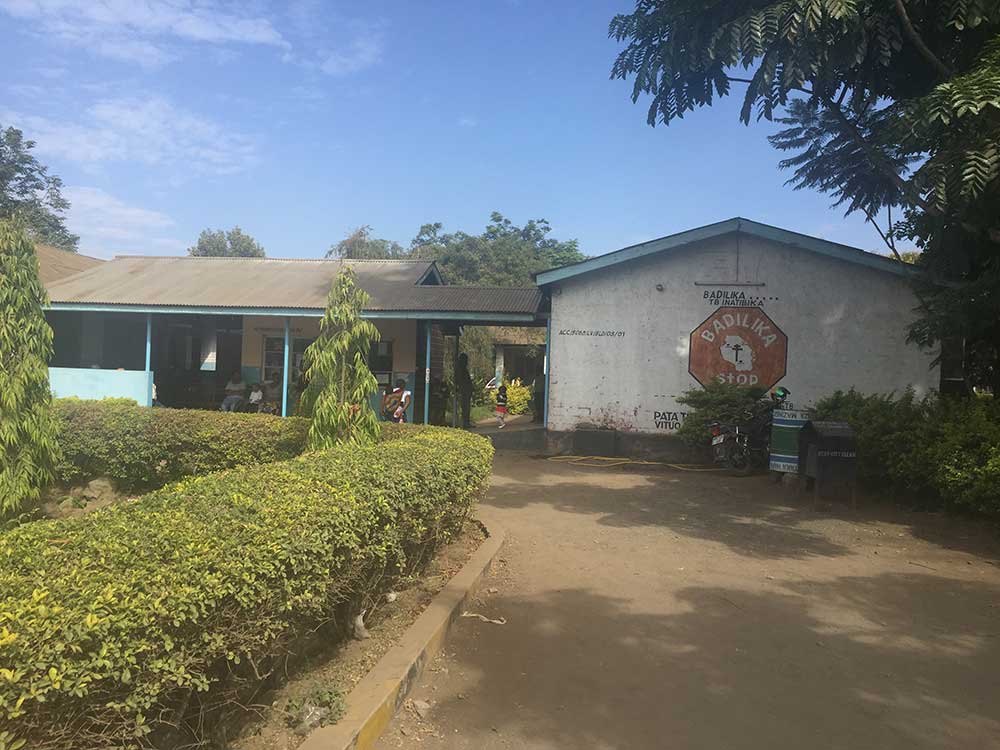
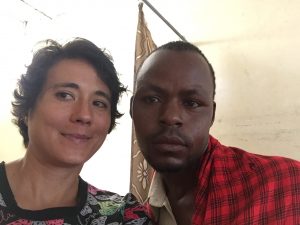 The Labor and Delivery ward was so different than one in the United States. Women had to bring all of their own supplies. They would bring several of the colorful brightly patterned cloths that you see everywhere in this part of Africa- kangas. One kanga would be put down on the delivery bed, as there were no sheets. Another would be used to wipe off the baby and clean up all the body fluids. Another would be used to swaddle the new baby. I was told that this was also how women could identify their baby, as there were no ID bracelets, and all the new babies were placed on the same table under a heating lamp (when the electricity was working). Patients had to bring their own needles and syringes, their own sutures and bandages. If a patient needed a medication, the doctor wrote a prescription and sent a family member to the pharmacy to pick it up. In the United States I am sometimes horrified by how much garbage our hospitals produce. In Tanzania it was the opposite, there was so little garbage. Sometimes I actually missed the garbage and found myself wishing that I had some disposable wipes to use, or a one time use saline flush wrapped in plastic.
The Labor and Delivery ward was so different than one in the United States. Women had to bring all of their own supplies. They would bring several of the colorful brightly patterned cloths that you see everywhere in this part of Africa- kangas. One kanga would be put down on the delivery bed, as there were no sheets. Another would be used to wipe off the baby and clean up all the body fluids. Another would be used to swaddle the new baby. I was told that this was also how women could identify their baby, as there were no ID bracelets, and all the new babies were placed on the same table under a heating lamp (when the electricity was working). Patients had to bring their own needles and syringes, their own sutures and bandages. If a patient needed a medication, the doctor wrote a prescription and sent a family member to the pharmacy to pick it up. In the United States I am sometimes horrified by how much garbage our hospitals produce. In Tanzania it was the opposite, there was so little garbage. Sometimes I actually missed the garbage and found myself wishing that I had some disposable wipes to use, or a one time use saline flush wrapped in plastic.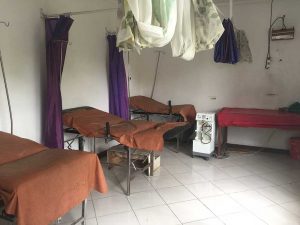 re for them. It was inspiring to see how strong women are capable of being.
re for them. It was inspiring to see how strong women are capable of being.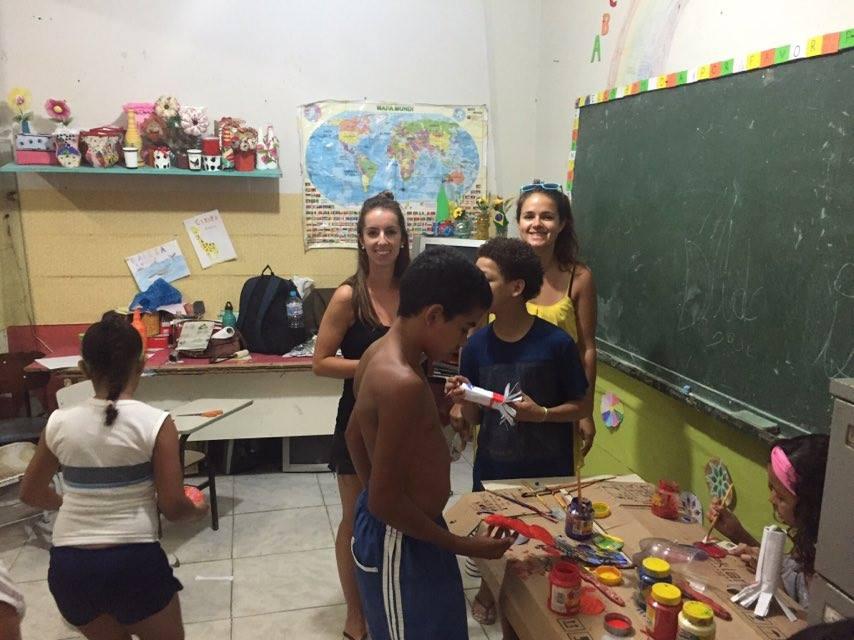
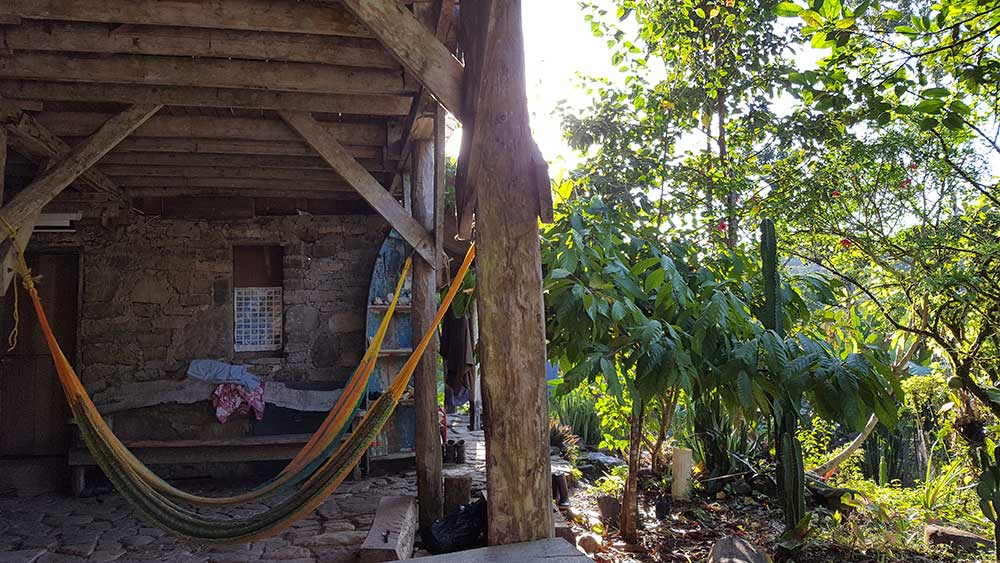
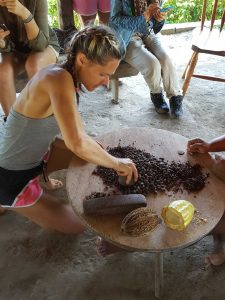 The day to day chores consists of taking care of the farm, both the fruit forest and the animals. We collect and peel a lot of bread nuts for the chickens and at the time pay much attention to the Vega garden that has to be watered due to lack of rain. The vega garden is a vegetable garden at the slope next to the river where the soil is rich from nutrients from the river.
The day to day chores consists of taking care of the farm, both the fruit forest and the animals. We collect and peel a lot of bread nuts for the chickens and at the time pay much attention to the Vega garden that has to be watered due to lack of rain. The vega garden is a vegetable garden at the slope next to the river where the soil is rich from nutrients from the river.